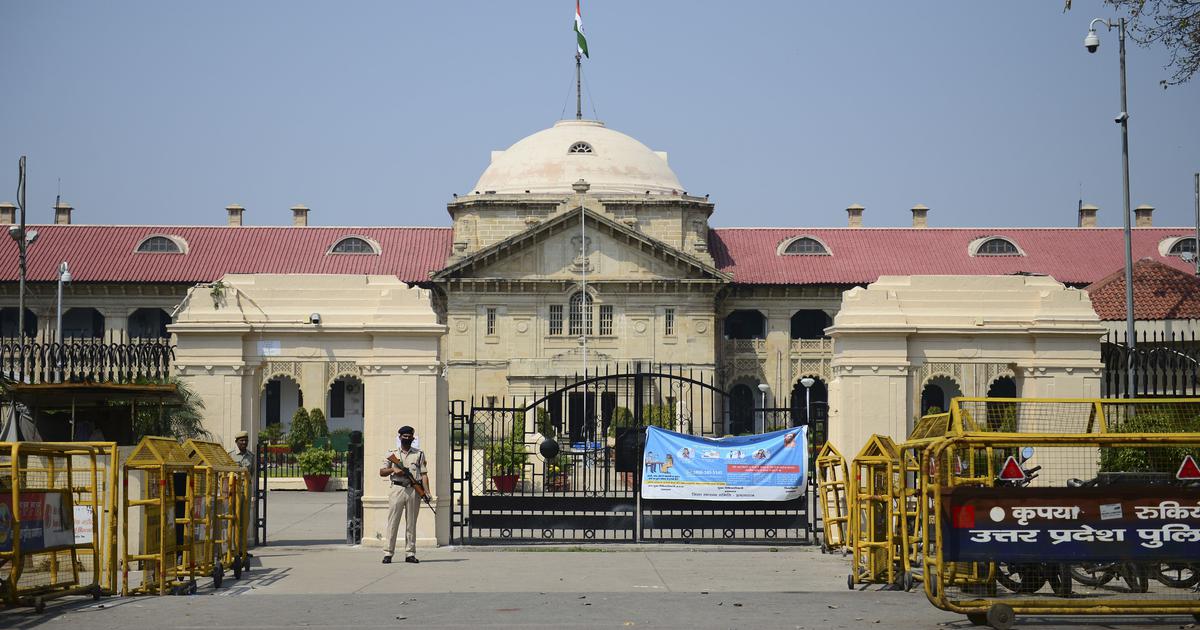Cow acts as surrogate mother of human beings, observes Allahabad HC

The Allahabad High Court called for the Central government to declare the cow as "protected national animal," and ban its slaughter.
TCN Special Correspondent
NEW DELHI — Those who slaughter cows and let others kill the sacred animal are deemed to rot in hell for as many years as there are hairs on his body, observed the Allahabad High Court while stressing the need to stop the practice and hoping from the Central government to take "appropriate decision" to ban it.
The court sought the Centre to declare it as a "protected national animal".
"India is a secular country where we must have respect for all religions. In Hinduism, the belief and faith is that the cow is representative of divine and natural beneficence; and therefore, it should be protected and venerated," the court observed, refusing to quash a criminal case against one Mohammad Abdul Khaliq, who is alleged to have slaughtered a cow and transported beef to sell. The accused is booked under sections 3, 5 and 8 of the Uttar Pradesh Prevention of Cow Slaughter Act, 1955.
Describing the degree of the veneration of the cattle, the bench of Justice Shamim Ahmed said its 'panchagavya' (a mixture used in traditional Hindu rituals that is prepared by mixing cow dung, urine, milk, ghee and curd) is used for purification and penance.
Tracing its holiness to the Vedic period (seventh century BC, the high court said, "The cow is the most sacred of all the animals of Hinduism. It is known as Kamadhenu, or the divine cow, and the giver of all desires. The Puranas (a vast genre of Indian literature) state that nothing is more religious than the gift of cows. Lord Rama was given a gift of many cows. In the Mahabharata, Bhishma (grandfather of the leaders of warring factions) observes that the cow acts as a surrogate mother by providing milk to human beings for a lifetime, so she is truly the mother of the world."
Bhishma, the court noted, observes that the cow acts as a "surrogate mother" by providing milk to human beings for a lifetime.
"So she is truly the mother of the world," said the court.
The bench observed legends stating that Brahma (a Hindy God referred to as the creator) gave life to priests and cows at the same time so that the priests could recite religious scriptures while cows could afford ghee (clarified butter) as an offering in rituals.
"The cow has also been associated with various deities, notably Lord Shiva (whose steed is Nandi, a bull), Lord Indra (closely associated with Kamadhenu, the wise-granting cow), Lord Krishna (a cowherd in his youth), and goddesses is general (because of the maternal attributes of many of them). The cow is the most sacred of all the animals of Hinduism. It is known as Kamadhenu or the divine cow, and the giver of all desires," the bench observed.
The court further noted, continuing to place reliance on legends, the cow emerged from the ocean of milk during Samudramanthan (churning of the ocean) carried out by gods and demons. The animal, according to the bench, was presented to seven sages and finally came into sage Vasishta's custody.
Explaining what the different organs of the bovine actually symbolise, the high court said its legs symbolise four Vedas, horns the God, face the sun and moon and shoulders agni or the God of fire. Its source of milk is four Purushartha (or objectives, i.e. dharma or righteousness, artha or material wealth, kama or desire and moksha or salvation).
"She has also been described in other forms: Nanda, Sunanda, Surabhi, Susheela and Sumana," the bench added.
With regard to the refusal of the relief sought, the court said "the interference at the threshold of quashing of the chargesheet/criminal proceedings in the case in hand be said to be exceptional as it discloses prima facie commission of an offence".
